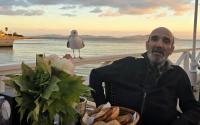5 April 2007Kathy Marks
A strange silence was the first clue that something was wrong. The dawn chorus that usually woke residents of the picturesque coastal town of Esperance, in Western Australia, had stopped. Then birds began falling out of the sky.
Local people were alarmed when they came across dead lorikeets, wattlebirds, honeyeaters and silvereyes in their parks and back yards. Health officials told them not to worry. But they tested their rainwater tanks, the main source of drinking water, and found dangerously high levels of lead or nickel in more than a third.
The authorities still insisted there was no cause for concern. Then they tested the seabed at the Esperance port, through which nickel and lead carbonate mined inland are shipped to Asia. Some samples contained 130 times the recommended health levels of the two metals. It was also established that 4,000 birds had died of lead poisoning.
There was lead in the air, lead in the drinking water, and lead in the sea. And when health officials finally admitted that there might cause for concern and began testing the population, they found lead in their blood.
Out of 900 people tested, 12 - including two young children - had higher levels than those deemed acceptable by the World Health Organisation. Lead is a particular hazard for small children and pregnant women.
The West Australian government has now ordered an inquiry. The port authority has halted exports of lead carbonate, and the mine, Magellan Metals, has suspended operations. Residents have been warned not to drink water from their tanks and to avoid eating fish, shellfish or crustaceans caught locally.
But residents fear that their long-term health has been damaged and they are furious with local authorities for playing down the risks. It was December when the birds began to die. Only in the past fortnight has the situation been treated with due seriousness.
Meanwhile, it has emerg-ed that the port authority did not report two "spikes" in lead dust emission levels, recorded in February and May last year.
Graham Jacobs, a GP and local politician, said: "I think it is appalling. Lead is a serious heavy metal pollutant, and it has enormous implications for the vulnerable people, particularly, in our community."
Dr Jacobs said earlier official advice that the lead levels that killed the birds did not pose a threat to humans had been premature.
"It's a bit like me saying my patient is not having a heart attack, without looking at the blood test or the ECG (electrocardiogram)," he told the Australian Broadcasting Corporation.
More than 100,000 tons of lead carbonate - by far the most toxic form of lead, if inhaled or ingested - have been shipped through the port over the past 18 months. The birds were poisoned by lead dust from the carbonate.
The high levels of nickel and lead at the port were found in rocks and sediment next to the loading wharf, and the state's director of environmental protection, Robert Atkins, said they were, "most likely to have arisen from drainage off the port wharf area and the loading facility".
The mining company has suggested that the lead be exported in sealed containers, or turned into pellets. Previously it was transported in a granulated form. But Esperance residents want the shipments halted completely. There is speculation that lead dust escaped during loading and was blown over the town where it settled on roofs and was then washed into rainwater tanks.
Jim McGinty, the state health minister, called the situation in Esperance, "very worrying from a public health perspective".
Jim Dodds, a health department spokesman, told ABC that unsafe lead levels in blood had not been found across the entire population, or even throughout families, so the cause was not clear.
http://news.independent.co.uk/environment/article2422658.ece






